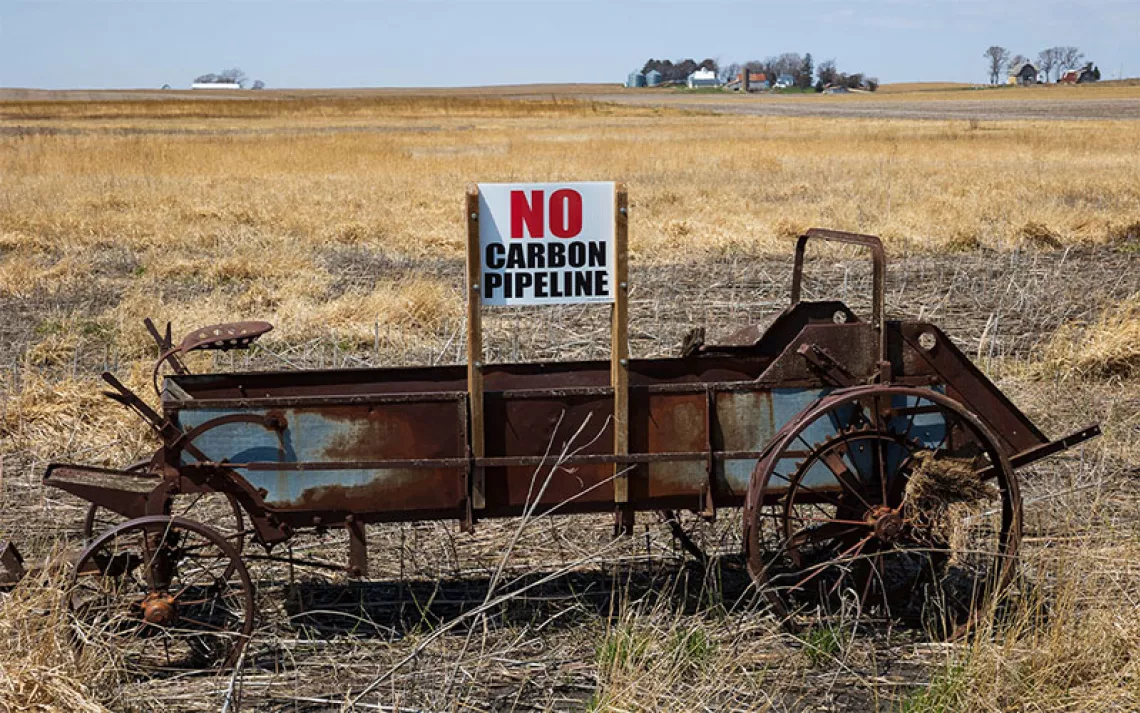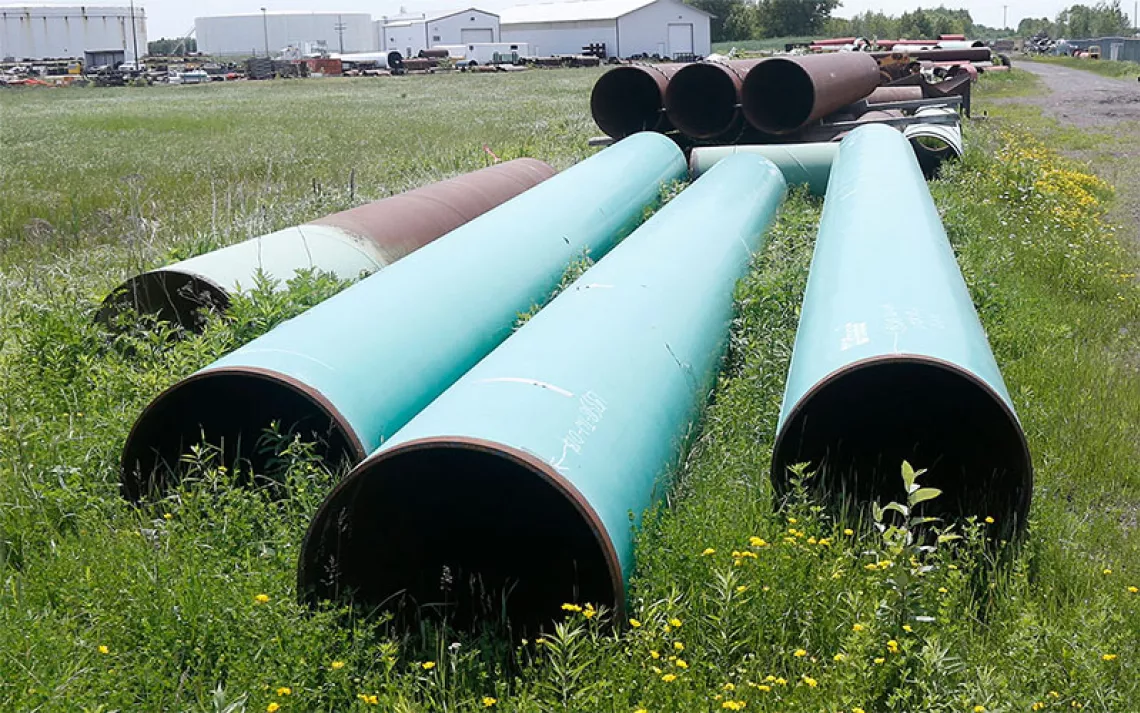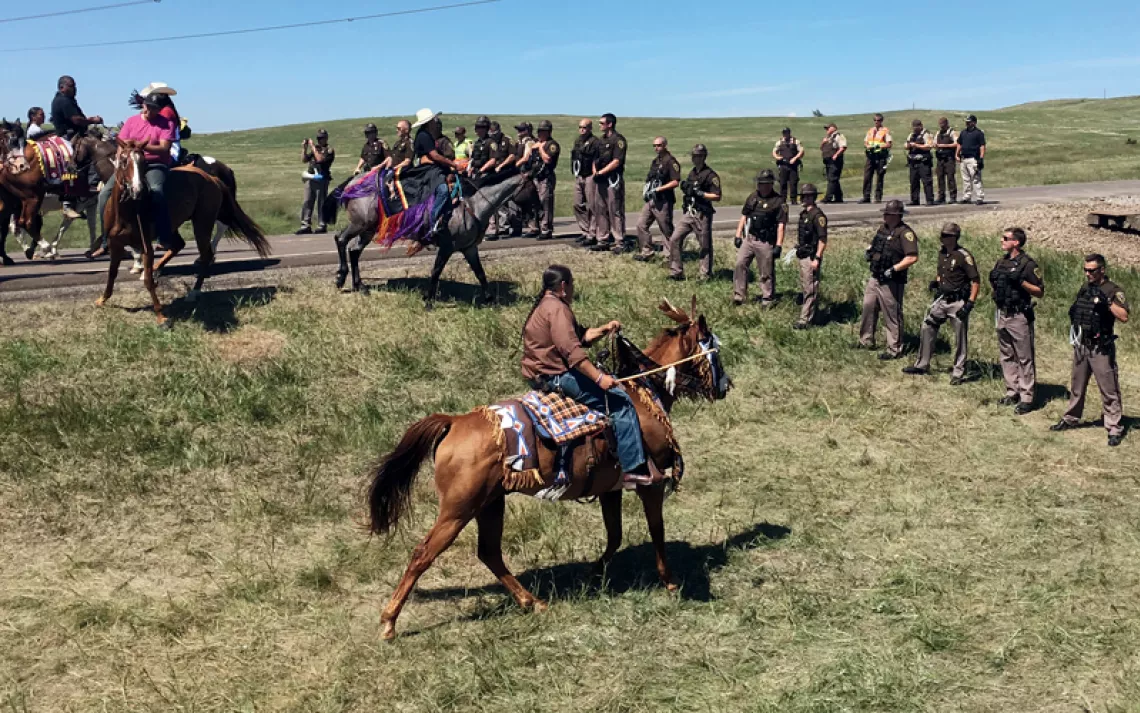Judge Blocks the Keystone XL Pipeline
Tells Trump he needs a “reasoned explanation” for ignoring climate science

A protest sign in the proposed path of the Keystone XL pipeline, in Silver Creek, Nebraska. | Photo by AP Photo/Nati Harnik
Late on the afternoon of November 8, federal judge Brian Morris of the United States District Court for Montana blocked construction of Keystone XL, the hotly disputed, 1,200-mile pipeline that would carry oil from the tar sands fields of Alberta, Canada, to Gulf Coast refineries. In doing so, he delivered a major slap to the Trump administration, saying that the State Department could not “simply discard” climate concerns about the massive project.
Trump’s support for the Keystone XL pipeline was a defining element of his campaign for president. Former president Barack Obama had blocked it over climate concerns, and Trump’s go-ahead to the project, issued only days after his inauguration, was a clear repudiation of his predecessor’s environmental efforts. The Indigenous Environmental Network and the Northern Plains Resource Council appealed Trump’s reversal; Thursday’s order was the court’s response.
In the order, Judge Morris challenges the State Department’s analysis in a number of areas: the effects of changing oil prices on the pipeline’s viability; the department’s lack of progress in surveying the significant cultural resources in the pipeline’s path; and its need to update its response to potential spills. There had been eight significant pipeline spills between 2014 and 2017, he noted, including a major spill on Keystone itself.
But the court’s most significant complaint is in regard to the pipeline’s climate warming effects, particularly in conjunction with the already approved expansion of the Alberta Clipper pipeline. When the Obama administration blocked Keystone XL in 2015, the court noted, it “relied heavily on the United States’ role in climate leadership.” It acknowledged the need to keep global temperatures below 2°C over preindustrial levels, recognized that human activity is the dominant cause for climate change, and cited the effects of a changing climate, like storm surges and intense droughts.
When Trump’s State Department reversed Obama’s order, it basically admitted all of the above but explained away the need for U.S. action by saying that there had been “numerous developments related to global action to address climate change, including announcements by many countries of their plans to do so.” That is to say, other countries would take care of it, an argument that did not impress the court. “Once again,” Judge Morris wrote, “this conclusory statement falls short of a factually based determination, let alone a reasoned explanation, for the course reversal.”
Judge Morris cites, approvingly, a previous case that made clear that “even when reversing a policy after an election, an agency may not simply discard prior factual findings without a reasoned explanation. . . . An agency cannot simply disregard contrary or inconvenient factual determinations that it made in the past, any more than it can ignore inconvenient facts when it writes on a blank slate.” Trump is entitled to his own policy, the court said, but not its own facts.
In response, Trump declared the decision “a disgrace” and said that he would appeal it to the Ninth Circuit Court of Appeals: “Everything goes to the Ninth Circuit. Everything.”
 The Magazine of The Sierra Club
The Magazine of The Sierra Club



